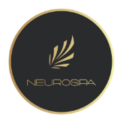Health and Hormone Balancing - Shana Light, FNP-C
Experience greater vitality and balance with comprehensive health assessments and personalized hormone therapy, offered both in person and via virtual visits. Address fatigue, mood shifts, and hormonal changes with expert support—wherever works best for you.
New Patient Visit: $400 ($200 sliding scale)
Follow-Up Visit: $250 ($125 sliding scale)
